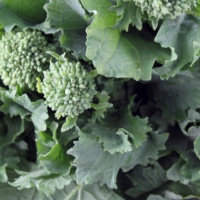
Folate (commonly – but mistakenly – known as folic acid) is the vitamin most women know is essential during pregnancy.
It’s necessary for the production of new DNA, and new DNA is needed for all new cells. As a baby grows in the womb, constant cell division is taking place which requires the continual production of new cells. This in turn requires a large supply of folate.
Folate also promotes healthy neural tube formation, adequate birth weight and proper development of the face and heart.
This explains why the RDA for folate during pregnancy is 600 mcg/d, 50% higher than the non-pregnant RDA of 400 mcg/d.
However, the pregnancy RDA is based on the amount needed to prevent birth defects – not promote robust health. It also assumes that 50% of the folate consumed is absorbed. But studies show this is just an average, and the rate of absorption from food is dependent on many factors, including zinc status.
So we know that 1) folate plays a crucial role during pregnancy, and 2) many pregnant women are probably not getting enough folate.
By this reasoning, it makes sense that all pregnant women should take folic acid supplements, right?
Not so fast.
Folic acid is not the same as folate
Folic acid is a chemical not normally found in foods or the human body. Folic acid can be converted into usable forms of folate, but that conversion is limited in humans. And, folic acid does not cross the placenta like natural folate.
Studies show that consuming too much folic acid (from supplements) can lead to high levels of unmetabolized folic acid in the blood. In fact, doses as low as 400 mcg/d – the amount recommended by mainstream health authorities – can cause this to happen.
Unmetabolized folic acid is associated with several health problems. It can mask vitamin B12 deficiency, enhance the development and progression of certain cancers, and depress immune function.
Unfortunately, most pregnancy multivitamins use folic acid instead of natural folate because it’s cheaper. While folic acid does prevent neural tube defects, it doesn’t have the other beneficial effects of natural folate. And as I just explained, excess folic acid can cause several health problems.
As always, it’s best to meet our nutrient requirements from food, since that’s how humans are adapted to absorbing them. The highest sources of naturally occurring folates are liver, legumes like lentils and dark leafy greens like kale and collards.
However, even when regularly consuming these foods it may be difficult for a pregnant woman to obtain the necessary amount of folate. While the RDA is 600 mcg/d, I recommend a total amount of between 800 – 900 mcg/d from food and supplements combined.
Just make sure you choose a supplement that contains naturally occuring folates instead of folic acid.
Since most common multivitamins contain folic acid and not folate, you may have to order folate from the internet. At the time of this writing, several companies sell naturally occurring folate supplements, including Solgar, Metagenics and KAL.
How do you know if it has folate instead of folic acid? Check the label. If it says “folic acid” anywhere in the ingredients, you don’t want it. If it says “folate”, “5-methyl-tetrahydrofolate”, “L-methylfolate” or “Metfolin”, it’s safe.
Leave A Reply (3 comments So Far)